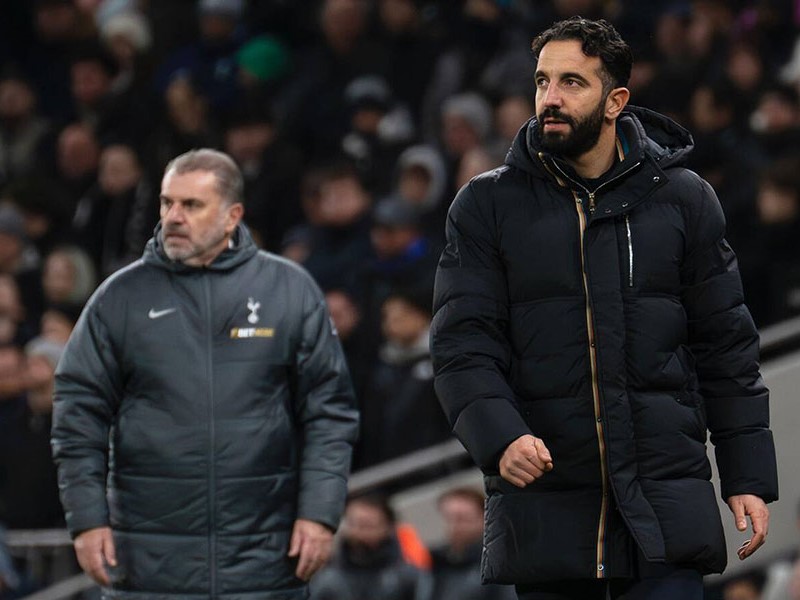Manchester United and Tottenham Hotspur will face off in the Europa League final on 21 May, ensuring another all-English affair in European football. United reached the final by dominating Athletic Bilbao over two legs, progressing with an emphatic 7-1 aggregate score. Tottenham, meanwhile, eased past Bodo/Glimt of Norway, finishing their semi-final tie with a comfortable 5-1 advantage.
This marks the sixth time two English clubs will contest a major European final, and it’s the third such occasion involving Spurs. For United, a win would be their second Europa League title in eight years, while Tottenham are aiming to end a 41-year drought in European competitions.
Familiar rivals on the big stage
Tottenham will enter the final with confidence, having defeated Manchester United three times already this season. Ange Postecoglou’s side earned a 3-0 win at Old Trafford, followed it up with a narrow 1-0 victory at home in the Premier League, and edged a thrilling 4-3 win in the League Cup.
Despite this strong record, United manager Ruben Amorim highlighted how rare it is for one team to beat another four times in a single season, suggesting that might favor his side. Former Spurs midfielder Glenn Hoddle echoed that sentiment, noting that such a repeat is tough even when form is in your favor.
United’s most recent European silverware came in 2017 under Jose Mourinho. They narrowly missed out in 2021, losing a penalty shootout to Villarreal in the final. Though their domestic form this season has been underwhelming, former player Paul Scholes believes the club’s pedigree in Europe could be the deciding factor. He compared United’s ability to perform on the continental stage to Real Madrid, stating that history often works in their favor, whereas Tottenham lacks the same trophy-winning experience.
European final with unexpected stakes
Both clubs are languishing near the bottom of the Premier League table, with United in 15th and Spurs just one place behind. Nevertheless, victory in Bilbao would not only bring silverware but also secure a spot in next season’s Champions League – something otherwise out of reach due to their league positions.
Tottenham manager Postecoglou dismissed domestic struggles, pointing out that form in the league shouldn’t overshadow a place in a European final. He noted that many teams have finished high in the Premier League without making it to major finals and emphasized that both clubs had earned their right to compete.
Interestingly, the winner of this match would be the lowest-placed domestic team to lift the Europa League trophy since it was rebranded in 2009. No previous finalist or winner has finished lower than 12th in their league, with Sevilla and Fulham both reaching finals from that position in the past.
A final balance on a knife edge
According to Opta’s predictive model, Manchester United are slight favorites to claim the trophy, with a 50.7% probability, compared to Tottenham’s 49.3%. Despite Spurs’ dominance in head-to-head meetings this season, analysts see the match as highly competitive.
Izzy Christiansen, speaking on TNT Sports, described the match as a thrilling prospect, with both sides having something to prove after disappointing domestic campaigns. Their parallel struggles in the Premier League set the stage for what is expected to be an intensely contested final.
The removal of Champions League dropouts from this year’s Europa League may have contributed to the path being more open for both clubs. Previously, a significant number of Europa League finalists and winners had started the season in the Champions League. This shift, introduced with the new European competition formats, may have reduced the strength of opposition faced en route to the final.
Previous all-English encounters in Europe
The first time two English sides met in a European final was back in 1972, when Tottenham defeated Wolverhampton Wanderers over two legs to claim the inaugural UEFA Cup. More than three decades passed before the next, when Manchester United edged out Chelsea on penalties in the 2008 Champions League final.
In 2019, both European finals featured English clubs. Liverpool beat Tottenham in the Champions League, while Chelsea overcame Arsenal in the Europa League. Two years later, Chelsea again triumphed in Europe, this time defeating Manchester City in Porto to win the Champions League.
Now, with United and Spurs meeting in Bilbao, English football will witness yet another chapter in its European rivalry – one that promises high stakes, history, and perhaps a surprise ending.




